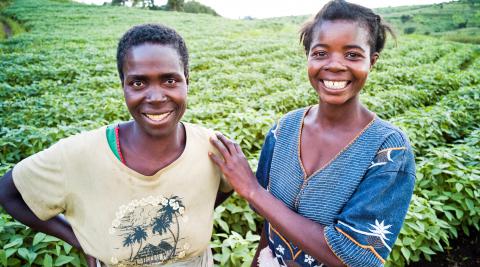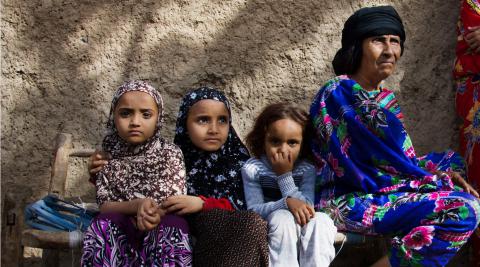There is limited public spending available to deliver the 2030 Agenda for Sustainable Development. To fill the gap, governments are increasing their funding of the private sector to support its achievement.
We therefore expect the private sector to demonstrate ethical and socially responsible behaviour by working in line with the UN Guiding Principles on Business and Human Rights (UNGPs), in particular by respecting and promoting the rights of women and girls.
Promoting gender equality is at the heart of the 2030 agenda: not only is it a goal in itself, but it also features in most of the other goals as a crucial area that needs to be tackled if sustainable and equitable development is to be achieved.
Violations of women’s and girls’ human rights occur in every country and cut across economic, social, and political spheres. Business activities, operations and policies create heightened risks to women’s rights and impact in gender-specific ways, affecting workers, community members and human rights defenders.
Women in less developed countries
Poor women living in less developed countries are particularly at risk to the adverse impacts of business activities. For example:
- Women may lose their livelihood as a result of being displaced from their farmland to make way for natural resource extraction such as mining.
- Affected women may lose out from compensation payments, as they are not considered heads of households.
- The majority of employees in global garment supply chains are women, often working long hours, with little protection or job security, and for pitiful wages.
What governments and businesses can do
Governments should legislate and monitor business respect for human rights, in line with the UNGPs
- Businesses can go beyond ‘doing no harm’ by proactively supporting women’s rights in their area of influence, as well as by identifying and addressing gender-based violations.
- This can only happen if businesses fully understand how their activities impact women and men differently. Gender specific impact assessments would make gender-based violations and opportunities visible, enabling businesses to proactively address them.
Since businesses can have profound human rights impacts – both positive and negative – they should be considered human rights actors and, as such, be held accountable for their actions.
The 2011 UN Guiding Principles on Business and Human Rights are a first step in this direction, although implementation has been slow due to a lack of accountability and monitoring mechanisms.
What is Progressio doing?
- We are influencing UK and international policy makers to implement the UN Guiding Principles on Business and Human Rights with a focus on promoting women’s rights.
- We are working with partner organisations in Africa to ensure that gender-specific rights violations are addressed.
- Our partner, the Zimbabwe Environmental Law Association (ZELA) is currently assessing how potential economic opportunities created by mining could contribute to women’s economic empowerment through the creation of local enterprises
Find out more:
- Join us at the upcoming Parliamentary roundtable: Women’s empowerment & the role of the private sector in development & responsible business hosted by the All-Party Parliamentary Human Rights Group in conjunction with the UK civil society coalition on corporate accountability on 17 October, RSVP using the link provided.
- Why National Action Plans on Business and Human Rights must integrate and prioritise gender equality and women’s human rights (1.0 MB PDF, July 2015)
- Why the UK National Action Plan on Business and Human Rights must integrate and prioritise gender equality and women’s human rights (428k PDF, Nov 2015)
- How can the extractive industries provide ‘shared value’ for rural women in Africa? (256k PDF, March 2015)
- Women, Compensation and Benefit-Sharing from Land Intensive Business Sectors (291k PDF, October 2014)





